Navigation
Install the app
How to install the app on iOS
Follow along with the video below to see how to install our site as a web app on your home screen.

Note: This feature currently requires accessing the site using the built-in Safari browser.
More options
You are using an out of date browser. It may not display this or other websites correctly.
You should upgrade or use an alternative browser.
You should upgrade or use an alternative browser.
Exposure Compensation
- Thread starter hamlet
- Start date
pgriz
Been spending a lot of time on here!
- Joined
- Jul 30, 2010
- Messages
- 6,734
- Reaction score
- 3,221
- Location
- Canada
- Can others edit my Photos
- Photos OK to edit
Sooooo exposure compensation is only good for the program modes????
Well, it's also good if you like playing with buttons. Won't affect your exposure if you're using Canon in manual mode. Might bias your meter if you're using Nikon in manual mode.
hamlet
No longer a newbie, moving up!
- Joined
- Sep 12, 2013
- Messages
- 2,894
- Reaction score
- 435
- Location
- Belgium
- Can others edit my Photos
- Photos OK to edit
Exposure compensation is really handy. I shoot in aperture priority a lot, so if my scene is not right i can tell my camera to do the calculations with different variables. The only better alternative would be if you can smell what settings you need. I once showed an image to pgriz, he could tell me exactly what aperture i was using without me telling him. That's the kind of instinct i'm talking about.
Patriot
No longer a newbie, moving up!
- Joined
- May 10, 2012
- Messages
- 807
- Reaction score
- 117
- Location
- Spokane, Washington
- Can others edit my Photos
- Photos OK to edit
Exposure compensation is used to override the automatic choices the camera makes in P, Aperture priority, and Shutter priority modes. The meter is programmed to adjust the exposure until it is "zeroed" at medium grey (either 18% or 12%), which is the "average" for most scenes. However, if the actual reflectance is much higher or lower, then the meter will be fooled. Say you put Poof in front of a medium grey background, and adjust the exposure until the meter is zeroed. Let's say it reads 1/60sec at f/8. You check the image and it is well exposed with a nice bell-curve of pixels centered around 125 on your histogram. Now, put Poof on a black cloth, although under the exact same lighting conditions. Now the meter sees all that dark and tries to increase the exposure so that the scene averages out to medium grey. Unfortunately, now Poof will be very overexposed. If you put Poof on a white cloth (same lighting conditions), then the opposite will happen. The camera doesn't know what the "natural" reflectance is of the scene, but you do. And because you know, you adjust the exposure compensation to override the camera's programming (in the semi-auto modes).
However, if you determine your exposure with an incident light meter, you can put the camera in manual and put in the exposure that is correct for the amount of light you have, regardless of the reflectance of the overall scene. If you don't have a incident light-meter, you can use the spot-meter function to keep the camera looking only at the portions that are relevant for the image (Poof in this case), and this will ignore the bright or dark surroundings that would otherwise throw the meter off the correct exposure.
Well this explains why it never works for me in manual mode. I feel retarded now.
pgriz
Been spending a lot of time on here!
- Joined
- Jul 30, 2010
- Messages
- 6,734
- Reaction score
- 3,221
- Location
- Canada
- Can others edit my Photos
- Photos OK to edit
Exposure compensation is really handy. I shoot in aperture priority a lot, so if my scene is not right i can tell my camera to do the calculations with different variables. The only better alternative would be if you can smell what settings you need. I once showed an image to pgriz, he could tell me exactly what aperture i was using without me telling him. That's the kind of instinct i'm talking about.
Trust me, Hamlet, it ain't instinct. I've been shooting film, slide, and now digital for over 50 years. If one approaches the technical side systematically, you can build up a mental projection of what a particular aperture at a given focal length will give you. This is no different from what athletes practice, to be able to place the ball, or the puck, or the projectile, at a specific point. I know a street shooter who uses a very nice Leica with a 35mm lens, who sets all the controls (aperture, shutter speed, focus point) without even looking at the camera, and who can very unobtrusively take well focused, well exposed and well composed images with the camera far away from his eyes. I am nowhere near his level of mastery of both the equipment, and of his ability to "read" the situation, and adjust accordingly. I know of another photographer, a freelance journalist, who makes studio-grade images with only about 10-20 seconds of prep time, much of it while he's moving from his car to wherever the shooting will take place. Both photographers have internalized the entire shooting process to the point that they think about it as much as they think about breathing or moving their feet. The fact that most of us get all hung up on the "right" lens, or the "right" exposure, or the "right" composition, just goes to show how little we actually understand this field.
If you can, join a club of photographers, hopefully one with a good mix of amateurs and professionals. Go on some shooting sessions with them, and watch them. Of course, the really good ones will make it look easy, and will get some really good shots with a minimum of fussing. They aren't thinking of the camera or lens or flash - but of where to place themselves to get the right perspective or the right moment. They work with the light, or make their own if nature doesn't cooperate. They focus on the moment, the emotion, the three seconds of good light, the peak action. The rest... happens without too much conscious thought from their part. I would like to be more like them. More practice.
Josh66
Been spending a lot of time on here!
- Joined
- Oct 31, 2007
- Messages
- 14,593
- Reaction score
- 1,239
- Location
- Cedar Hill, Texas
- Can others edit my Photos
- Photos NOT OK to edit
Yes, they basically are the same thing.Why not just use a faster or slower shutter shutter speed to overexposing or underexposing the picture as needed? Aren't these two concepts practically the same thing?
Exposure compensation is useful in the automatic modes (aperture priority, shutter priority, etc). In manual mode I find it faster/easier to just under-over expose by the desired amount by adjusting shutter speed or aperture.
hamlet
No longer a newbie, moving up!
- Joined
- Sep 12, 2013
- Messages
- 2,894
- Reaction score
- 435
- Location
- Belgium
- Can others edit my Photos
- Photos OK to edit
Exposure compensation is really handy. I shoot in aperture priority a lot, so if my scene is not right i can tell my camera to do the calculations with different variables. The only better alternative would be if you can smell what settings you need. I once showed an image to pgriz, he could tell me exactly what aperture i was using without me telling him. That's the kind of instinct i'm talking about.
Trust me, Hamlet, it ain't instinct. I've been shooting film, slide, and now digital for over 50 years. If one approaches the technical side systematically, you can build up a mental projection of what a particular aperture at a given focal length will give you. This is no different from what athletes practice, to be able to place the ball, or the puck, or the projectile, at a specific point. I know a street shooter who uses a very nice Leica with a 35mm lens, who sets all the controls (aperture, shutter speed, focus point) without even looking at the camera, and who can very unobtrusively take well focused, well exposed and well composed images with the camera far away from his eyes. I am nowhere near his level of mastery of both the equipment, and of his ability to "read" the situation, and adjust accordingly. I know of another photographer, a freelance journalist, who makes studio-grade images with only about 10-20 seconds of prep time, much of it while he's moving from his car to wherever the shooting will take place. Both photographers have internalized the entire shooting process to the point that they think about it as much as they think about breathing or moving their feet. The fact that most of us get all hung up on the "right" lens, or the "right" exposure, or the "right" composition, just goes to show how little we actually understand this field.
If you can, join a club of photographers, hopefully one with a good mix of amateurs and professionals. Go on some shooting sessions with them, and watch them. Of course, the really good ones will make it look easy, and will get some really good shots with a minimum of fussing. They aren't thinking of the camera or lens or flash - but of where to place themselves to get the right perspective or the right moment. They work with the light, or make their own if nature doesn't cooperate. They focus on the moment, the emotion, the three seconds of good light, the peak action. The rest... happens without too much conscious thought from their part. I would like to be more like them. More practice.
50 years? You look like a 20 year something old in your picture. What's your secret?
pgriz
Been spending a lot of time on here!
- Joined
- Jul 30, 2010
- Messages
- 6,734
- Reaction score
- 3,221
- Location
- Canada
- Can others edit my Photos
- Photos OK to edit
A hot wife. Gotta keep up, you know. Jokes aside, I was still getting carded when I was almost 30. Crossing the border sucked, because the guards always though I was driving my Dad's car. The department that I organized and ran had almost 30 people in it, and all were older than me. When we went to corporate presentations with some of my staff, the other people often thought I was the junior guy. That actually worked quite well in certain situations. My wife also looks much younger than she is. Not too long ago, someone asked my oldest daughter what was the name of her "sister". We had a good laugh over that one.
Similar threads
- Replies
- 3
- Views
- 2K
- Replies
- 6
- Views
- 2K

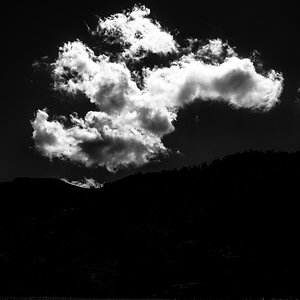
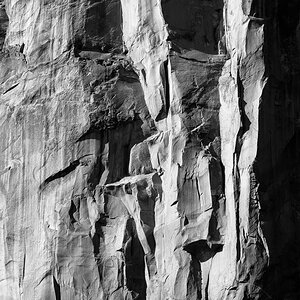
![[No title]](/data/xfmg/thumbnail/38/38738-7933157d1b8968c986eeeab2d1828524.jpg?1619738703)
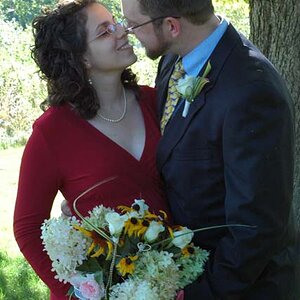
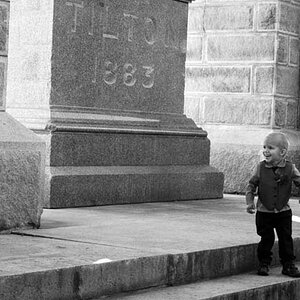
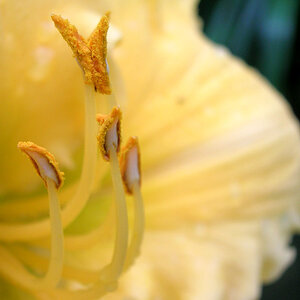
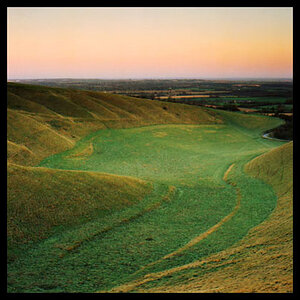
![[No title]](/data/xfmg/thumbnail/33/33490-cbbf9df0a1c31291ee7a3759afe943cc.jpg?1619736003)
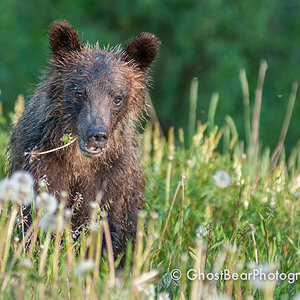
![[No title]](/data/xfmg/thumbnail/34/34138-0ecadfd41de9ae178e53528e0eb1a32c.jpg?1619736310)